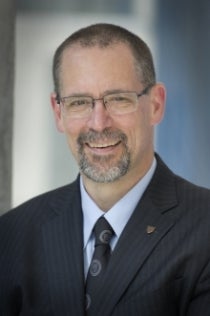
In 2018, Dean of Science Dr. Robert (Bob) P. Lemieux (2015-2023), announced a one-time commitment of more than $500,000 to support teaching and learning initiatives within the Faculty of Science. Lemieux hoped that this investment would transform the undergraduate educational experience in science at the University of Waterloo.
The focus of this initiative was to provide funding for the implementation of innovative and effective evidence-based teaching approaches within the Faculty of Science – with the goal of enhancing undergraduate learning in science.
Priority was given to projects that met as many of these criteria as possible:
- promote evidence-based teaching practices in science education (i.e., active learning)
- demonstrate potential to have a sustained, transformative impact on student learning, skills and attitude and/or to positively impact a large number of students
- collaborative initiatives involving multiple courses, instructors or departments
- appropriate academic support units (i.e., CTE, CEL, ITMS, Library, Writing & Communication Centre, Student Success Office). Collaborators should be consulted in proposal-writing phase
- have the potential to impact students from multiple disciplines within science
- have the potential to be adapted for other contexts (i.e., different class sizes or other instructors, courses, or disciplines)
- increase cost effectiveness while adding value
How much funding was available?
Total funding available for this initiative was $515 000. There was no hard maximum amount for individual projects and the number of projects that received funding was dependent on the nature and scope of proposals received. The expectation was that funding be utilized during the 2019-2021 calendar years, but given the pandemic and lock-down situation of 2020-21, funds were carried over to 2024.
Who was able to apply?
All interested science faculty and teaching staff were invited to coordinate with the teaching fellow within their department or school to formulate proposals for this funding.
What were the required elements of this application?
Applicants were encouraged to discuss their ideas for projects with their teaching fellow before developing their proposals. Collaborating academic support units were consulted during the proposal-writing phase. Proposals for funding were encouraged to include/discuss:
- Value to Student Learning & Expected Student Impact – With reference to evidence-based best practices. What are the immediate and projected long-term impacts?
- Project Outcomes – What issue/concern is the proposed project addressing and how? What specific products, processes, mechanisms (deliverables) will the project produce?
- Statement of Sustainability – How will the project be sustained beyond the current one-time funding?
- Evaluation Plan – How will you assess the impact and foster continuous improvement?
- Timeline – Provide a timeline for implementation and identify milestones.
- Budget – Provide a budget of anticipated expenses by general category (i.e., salaries, equipment supplies, etc.)
What could the funds be used for?
Funds could be used for expenses related to the implementation of innovative and effective evidence-based teaching approaches. Eligible expenses included, but were not limited to, short-term salaries, teaching relief (perhaps to accommodate development and implementation time for contributing instructors) to honour the time commitment required for design and development of effective learning experiences. Equipment and supplies were also eligible if they were directly applicable to the project.
NOTE: With respect to sustainability, if monies were to be earmarked for salaries there was to be no expectation of ongoing salaries or staffing positions beyond the funding of this initiative. Examples of ineligible expenses included guest speakers, conference fees, and travel costs.
When was the application due?
Ideas for projects were to be discussed with teaching fellow by May 31, 2018. Final proposals had to be submitted by e-mail to Lisa Weber by 4:30 p.m. on August 31, 2018.
How will funding decisions be made?
Final applications were reviewed by a committee consisting of:
- Carey Bissonnette, senior teaching fellow, chemistry instructor
- Jason Thompson, Centre for Teaching Excellence, liaison: science
- Mary Power, Centre for Teaching Excellence, senior educational developer learning
- Aldo Caputo, Centre for Extended Learning, director
- James Skidmore, arts teaching fellow, german studies
- Gordon Stubley, engineering teaching fellow, mechanical & mechatronics engineering
Bob Lemieux, dean of science, in consultation with chairs/directors, verified and confirmed the final funding decisions.
Who were the main contacts for questions and clarification?
Initial project proposals and subsequent proposal development proceeded through consultation with the specific teaching fellow in order to optimize the distribution of the funds by coordinating and linking various proposals where feasible. Teaching fellows were also able to provide examples of innovative and evidence-based teaching practices. Applicants were encouraged to contact their teaching fellow for more information. Teaching fellows at the time of the granting selection period were:
- Carrey Bissonnette, Chemistry
- Christine Dupont, Biology
- Steven Forsey, Chemistry
- Barry Warner, Earth and Environmental Sciences
- Patricia Hrynchak, Optometry
- Cynthia Richard, Pharmacy
- Joe Sanderson, Physics and Astronomy